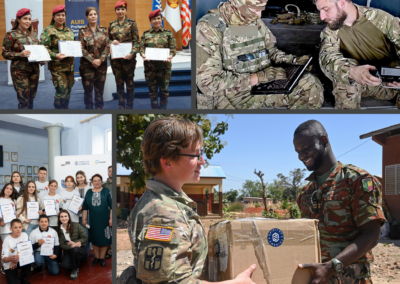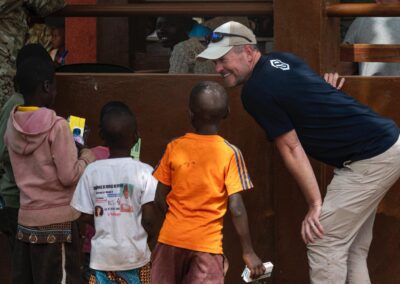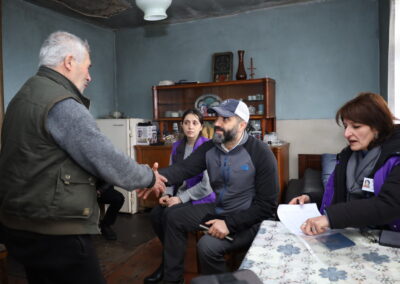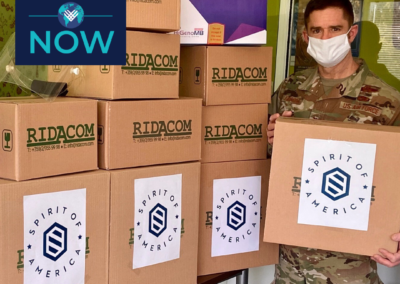Countering Extremism through Opportunity in Niger
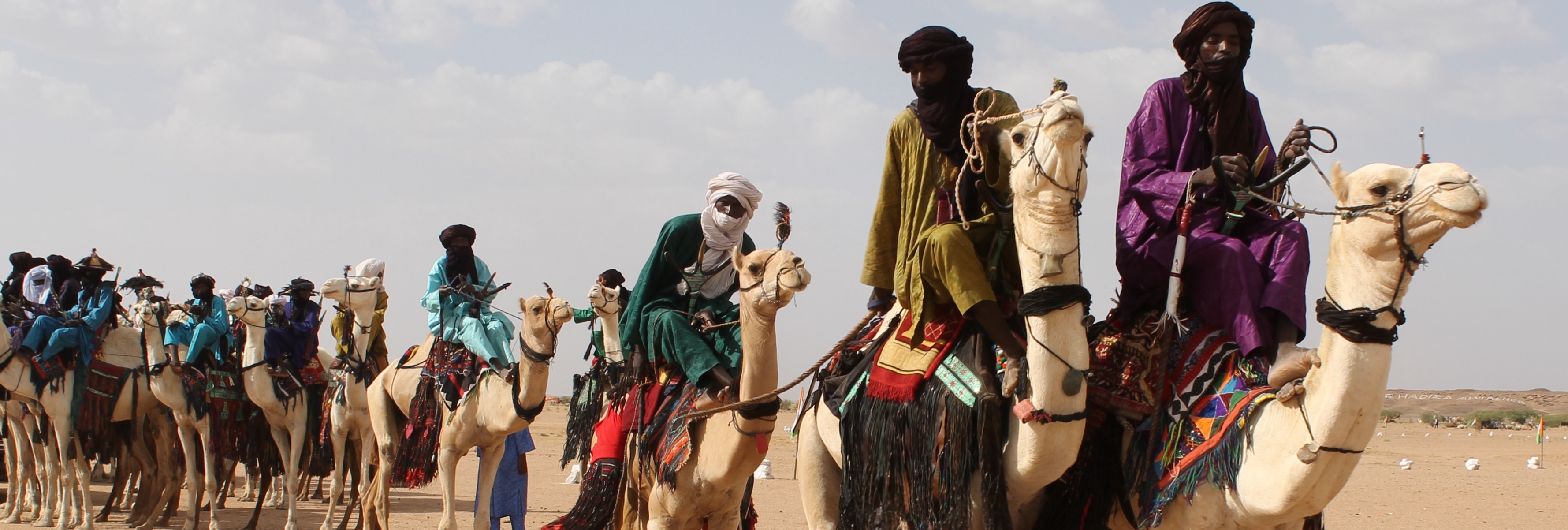
Greetings,
I recently returned from ten days in Niger, the culmination of a project Spirit of America has been working on since the beginning of the year. Niger, just to the north of Nigeria, with Mali to its west, Chad to its east, and northern borders with Libya and Algeria, is by many measures one of the poorest countries in the world. Desertification, astronomic births, mortality rates and a lack of economic opportunity create a highly unstable environment. When combined with extremist influence – the country’s borders are threatened by groups like al Qaeda in the Islamic Maghreb, Boko Haram, and the Movement for Unity and Jihad in West Africa – this could be a potential recipe for disaster.
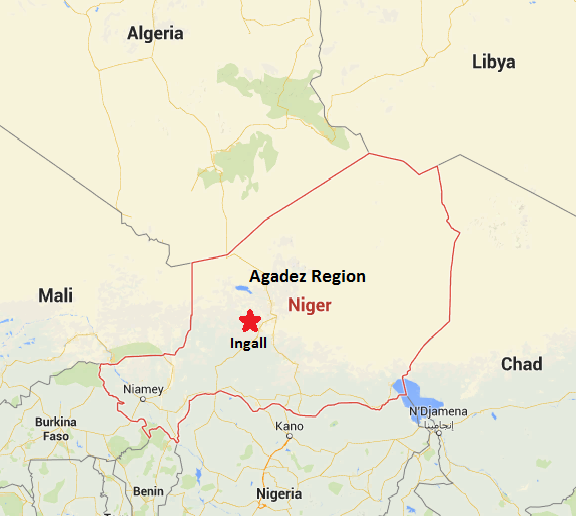
A U.S. Army Civil Affairs team is working to prevent those causes of instability from leading to conflict, something which has occurred several times throughout Niger’s history. I first traveled with the team in Feb. 2014 to see if there was a way Spirit of America could assist in these efforts. Following initial discussions, we determined that the northern region of Agadez would be the best place to focus our support.
During an initial assessment in rural parts of Agadez in April, it was apparent why this was an important region. The local population is comprised primarily of Tuareg and Fulani tribes, semi-nomadic herders, whose traditional way of life is under threat from desertification, eroding economic opportunity, and modernity in general. Coupled with feelings of marginalization from the rest of the country, these factors have contributed to multiple rebellions against the government over the last few decades. With extremist influence on the rise from neighboring Mali and Algeria, the region has the potential to erupt into conflict yet again.

The tribes of northern Niger lead a semi-nomadic, livestock-centric lifestyle
During the April assessment, the U.S. team, their Nigerien military partners, and I spoke with tribal leaders about their greatest concerns. Their top two issues, with security challenges also being highlighted, were: 1) acute human and animal food security problems caused by drought and desertification, and 2) instability due to widespread youth unemployment and disenfranchisement. In discussions with the team after the meeting the elders, we examined how SoA might be able to help address these issues in locally-appropriate ways. We knew we couldn’t solve all the region’s problems, but if we developed highly-targeted, realistic ideas, that could have an off-scale impact. Essentially, if the right people were given the right things at the right time, it might be enough to facilitate just enough change to foster enough hope to prevent conflict. This is an approach SoA uses on most of the projects we undertake in these types of environments.
Accordingly, we looked at the “who”, “what”, and “when”. “When” was easy – a traditional festival – the Cure Salée, takes place each year at the end of the rainy season. Marking the beginning of mass-migration to more fertile ground to the south, as well as the run-up to the Muslim holiday of Greater Eid, this giant party brings thousands of tribe members and their herds to the small town of Ingall, a town located near mineral- and salt-rich water sources that are particularly beneficial for livestock. If any support SoA provided could be announced and distributed during this event, it would receive a large amount of visibility across the population we wanted to reach.
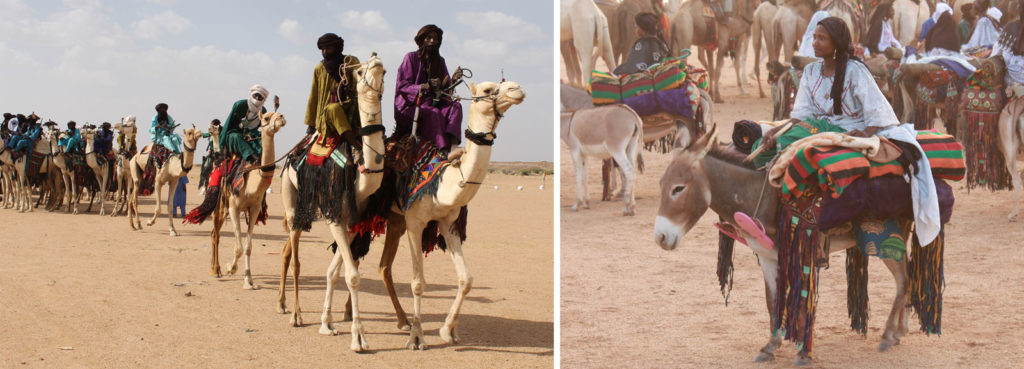 The Cure Salée festival brings tribes together from across the region
The Cure Salée festival brings tribes together from across the region
“Who” was also fairly simple: we needed to do something to reach local youth, and we needed to help create stronger linkages between the Nigerien government and the tribes as a whole.
With those two elements framing potential assistance, we looked at what made the most sense to provide. Ultimately, we decided on three things:
Scholarships for local youth to attend the national veterinary school, giving them the skills they need to take care of their tribes’ cattle, camels, and goats – the backbone of the traditional way of life. The region is plagued by a shortage of skilled veterinary care, and local youths lack opportunities to acquire marketable skills that are of value to their communities.
Dirt bikes so that livestock ministry officials can reach the most far-flung herds, improving their ability to treat sick animals and monitor disease among populations that are furthest removed from government services.
Additional veterinarians to participate in the annual vaccination campaign centered around the festival, a critical component of the Nigerien government’s strategy to take care of its people. Nigerien Army civil affairs team members would accompany the vets, using this as an opportunity to build relationships with locals (who have generally regarded the Nigerien military with at best suspicion and at worst downright hostility) in a non-threatening manner.
With these plans in place, the US and Nigerien teams and I coordinated the various elements over the course of the summer. Finally, at the end of September, we made the three day drive from Niger’s capital, Niamey, to Ingall to attend the Cure Salée and deliver the support.
The festival itself is an amazing spectacle. Thousands of tribespeople converge on the tiny town, creating their own city of a mixture of traditional Tuareg woven tents and colorful modern ones. Different tribes sport their varied elaborate costumes, camel and horse races are held, and the sounds of singing and dancing pervade the desert air from before dawn until late into the night.
The event was kicked off by the arrival of the Prime Minister, other high-ranking government officials, and regional dignitaries such as the Sultan of Agadez. During this opening event, the work of the U.S. team and the support provided by Spirit of America was announced over the public address system – a great way to publicize the project for all the assembled tribes.
Over the next few days, we traveled out to various water holes with the Nigerien Civil Affairs team, visiting the veterinarians whose presence Spirit of America funded. As they treated the herds of cattle, goats and camels that made their way from water source to water source, the Nigerien team established rapport with locals, helping wrangle the animals, explaining their work, and finding out about the needs of the population.
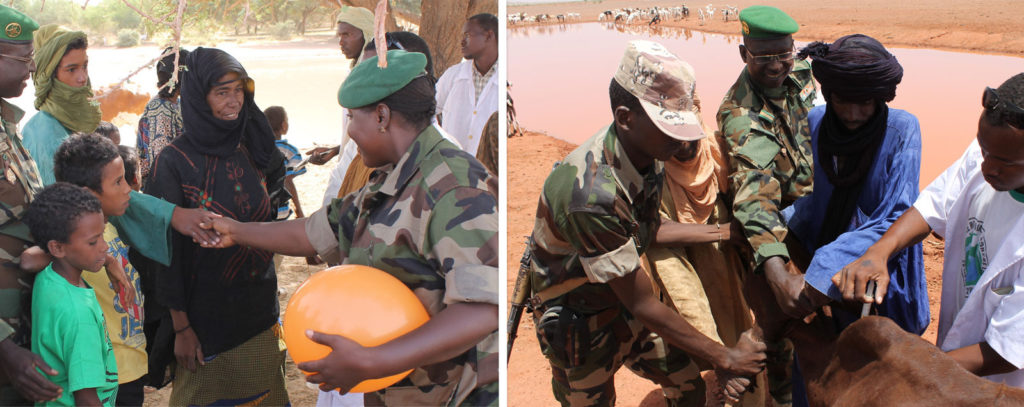
The vaccination campaign SoA supported helped build relationships between the Nigerien military and locals
In addition, the two dirt bikes were delivered to the local livestock ministry officials for use during and after the campaign. With various government officials and local dignitaries on hand, the Nigerien team leader conducted the official handoff. As with the other parts of the project, the intent of both the U.S. team and Spirit of America was to have the Nigerien government and military in the lead, helping them build relationships and trust with the tribes.

The Nigerien military took the lead in handing the bikes to the livestock ministry, with the U.S. team leader and SoA rep Isaac Eagan standing by
Finally, we met with youth that had been selected by their communities to receive scholarships to the veterinary school. While numbers are still being finalized, approximately ten young men will attend the nine-month program and then return home with newfound skills in veterinary medicine and business, providing a much-needed service to their communities while also earning valuable income.
Though the U.S. team and I had to return to Niamey after a few days, the Nigerien team remains in the region, building upon the foundation laid by the project. As with many of our projects, the process – in this case, the relationships between the Nigerien military and government and the people of Agadez – is in many ways just as important as the products.
Following our visit, the U.S. team leader, an Army captain, had this to say about the project: “Using the Cure Salée national nomadic festival as an opportunity to demonstrate the Nigerien Army’s willingness to support the local community was a resounding success. Increasing the number of veterinary agents during the vaccination campaign and supplying off road motorcycles for members of the Herding Office to reach outlying areas directly addresses the root causes of instability throughout Ingall, while granting veterinary scholarships to local youth ensures animal health goals are achieved far into the long-term.”
These types of projects, while relatively small in scale – the support provided by Spirit of America totals only around $41,000 – can have an off-scale impact if they are properly targeted. They can help reduce vulnerability to extremism, increase community resilience in the face of instability and prevent conflict. As always, thank you for your generous contributions – none of this would be possible without your support!
Warmest regards,
Isaac Eagan
Field Operations Manager

